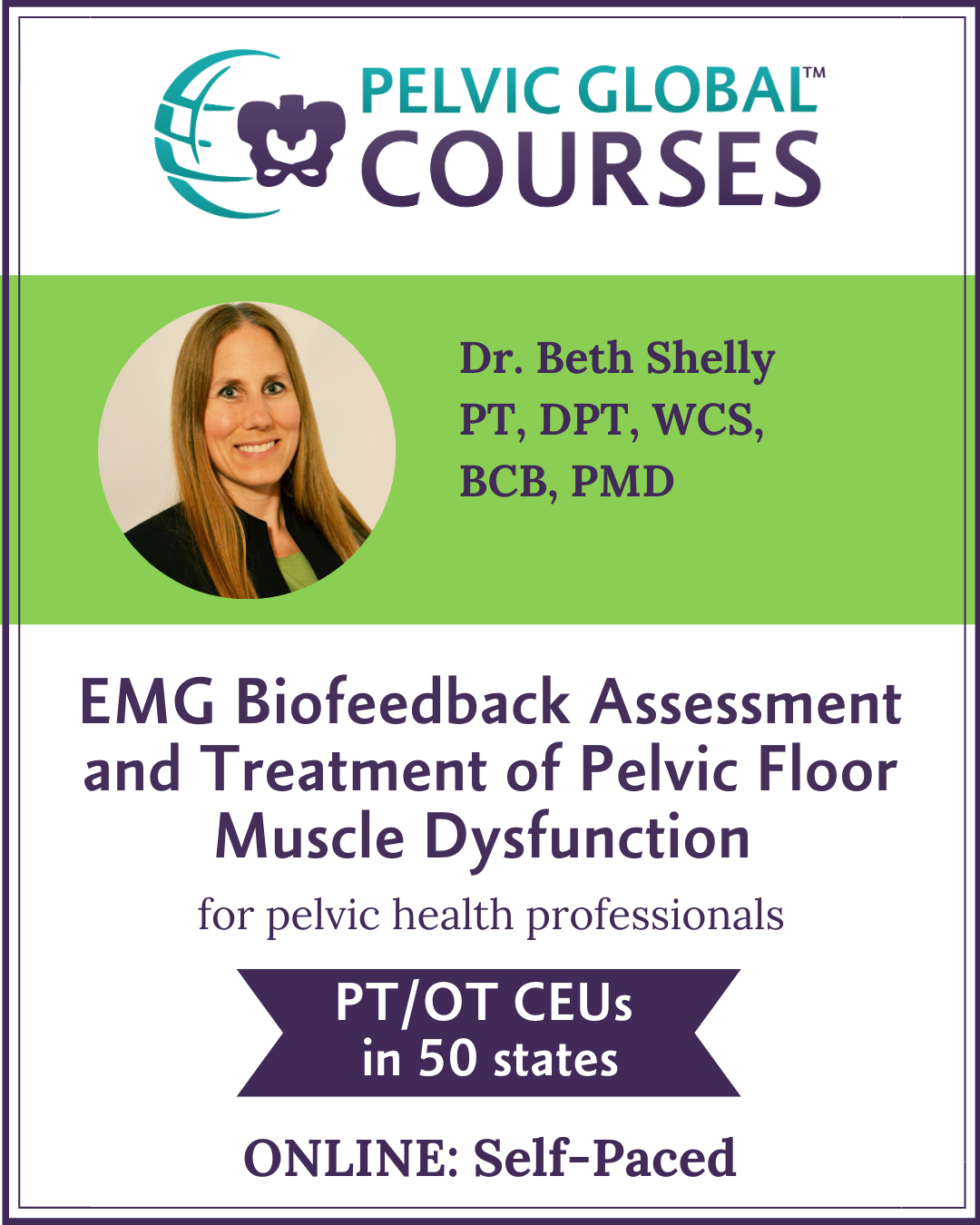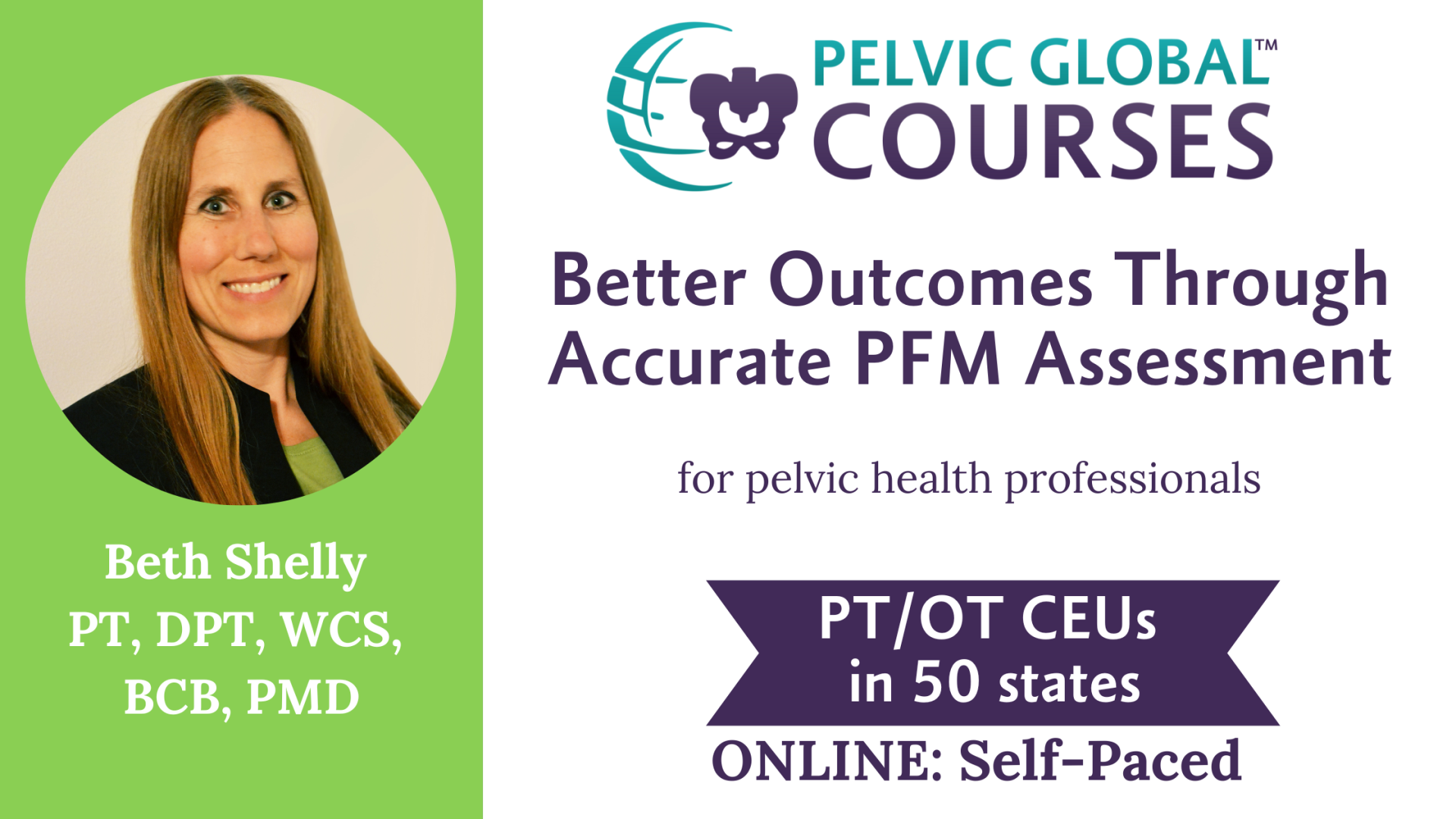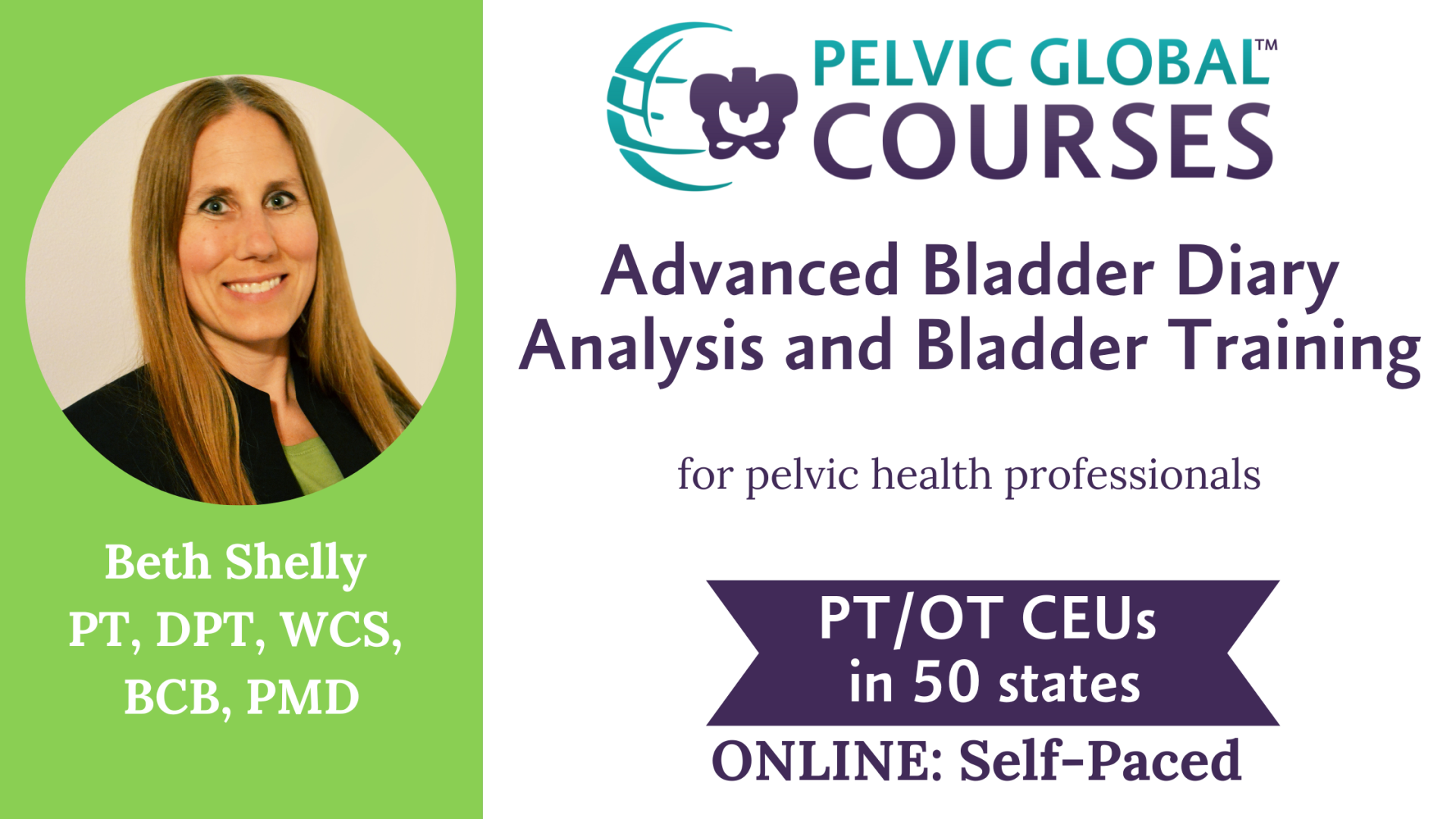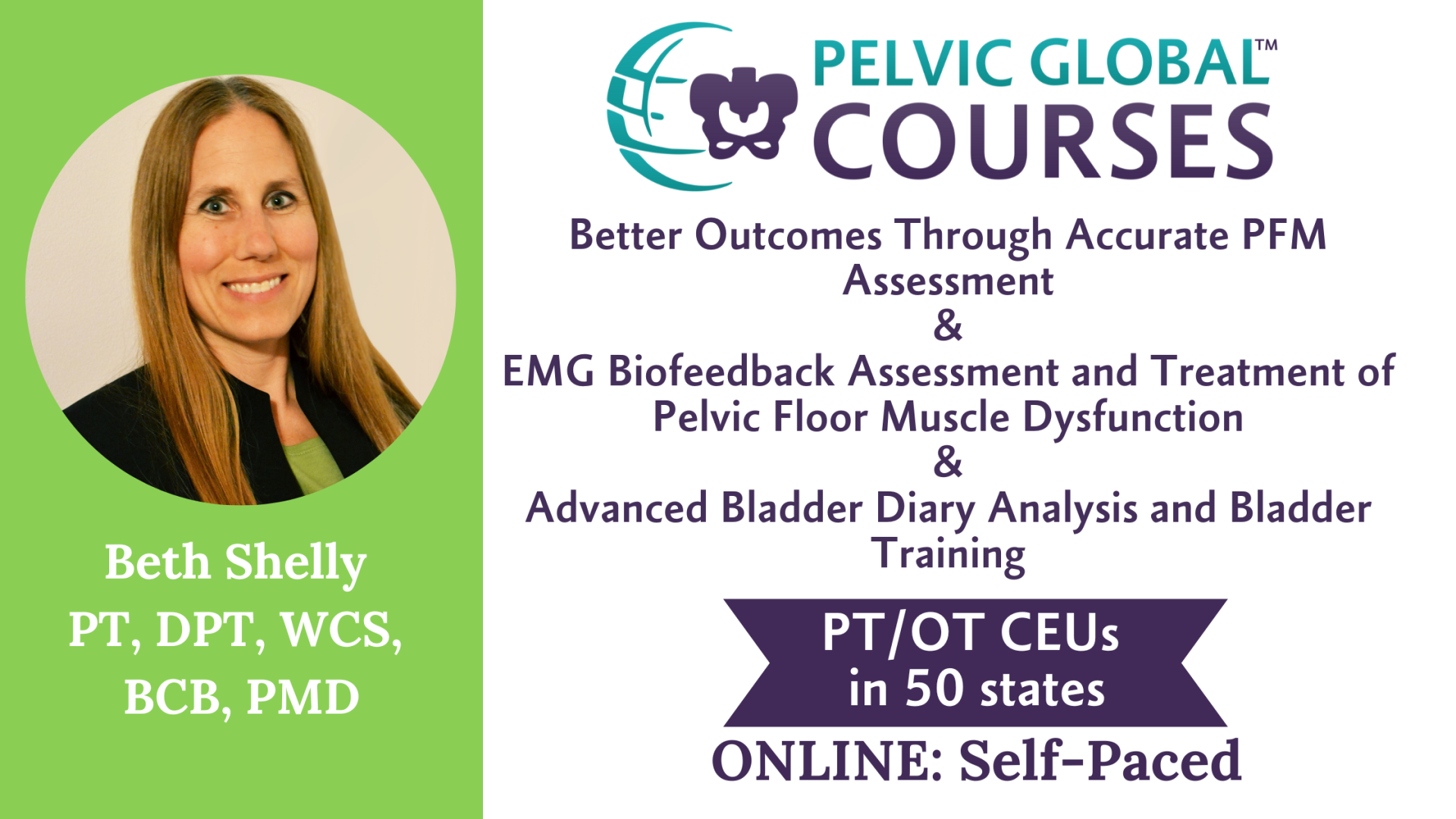EMG Biofeedback Assessment and Treatment of Pelvic Floor Muscle Dysfunction
Consistent with the new International Continence Society PFM terminology

ON SALE NOW!!!
Featured Bundle this month!
BONUS: Live Office Hours with Beth Shelly
While all of the course content is pre-recorded, you can jump on any or all of these office hour sessions!
Join Beth live for an hour of questions and answers to deepen your understanding of Pelvic Therapy. Bring your questions, cases, and queries. These sessions are intended to deepen thought processes and advance clinical practice. Meetings will be held via Zoom and are open to all Pelvic Guru members free of charge.
Join Beth live for an hour of questions and answers to deepen your understanding of Pelvic Therapy. Bring your questions, cases, and queries. These sessions are intended to deepen thought processes and advance clinical practice. Meetings will be held via Zoom and are open to all Pelvic Guru members free of charge.
-
- June 18 at 7 PM CST
Learn a new strategy for managing pressure systems!
What to expect:
Did you ever feel confused by the EMG tracing or wonder why the EMG training does not match your manual assessment? The most common reason for both is lack of therapist training. You are not alone, many pelvic therapists do not have the education, skill and knowledge to get the most out of EMG assessment and treatment. However, EMG is the only assessment that can document overactive PFM and can be instrumental in patient learning.
This course will provide pelvic therapists with comprehensive knowledge on EMG biofeedback assessment and treatment for a variety of pelvic floor muscle conditions. Course content includes the most recent research and integrates the new International Continence Society (ICS) pelvic floor muscle (PFM) assessment terminology.
Participants are expected to have a basic understanding of PFM anatomy, physiology, and pathology. Join us, learn more and get the most out of your EMG assessment and treatment.
This course will provide pelvic therapists with comprehensive knowledge on EMG biofeedback assessment and treatment for a variety of pelvic floor muscle conditions. Course content includes the most recent research and integrates the new International Continence Society (ICS) pelvic floor muscle (PFM) assessment terminology.
Participants are expected to have a basic understanding of PFM anatomy, physiology, and pathology. Join us, learn more and get the most out of your EMG assessment and treatment.
What will you learn?
OBJECTIVES:
At the completion of this course, participants will be able to:
At the completion of this course, participants will be able to:
- List conditions which could influence EMG signal amplitude and their clinical implications
- Properly place external and internal EMG electrodes
- Evaluate and interpret an EMG tracing and accurately label the findings using the ICS PFM assessment terminology
- Explain the EMG tracing to a patient for maximum motor learning
- Develop an EMG treatment plan for up training, down training and coordination training of the PFM
Be able to teach classes or work one-on-one!
Course Content:
Course Videos
Handouts
Meet the instructor
Dr. Beth Shelly, PT, DPT, WCS, BCB-PMD
Dr. Beth Shelly, PT, DPT, WCS, BCB-PMD, is a doctor of physical therapy and board certified in women's health and pelvic EMG biofeedback. Dr Shelly has been working in the field for over 30 years and has authored many chapters and professional articles and has taught many continuing education programs. She has been active in ICS on the Physiotherapy and Standardization Steering committees. Beth is co-chair of the recently published ICS standard terms for Pelvic Floor Muscle assessment and is an author of several other standard terms documents. Dr Shelly lectures to medical professionals all over the world and owns a private practice in the United States where she treats outpatients with all forms of pelvic floor dysfunctions.
Patrick Jones - Course author





